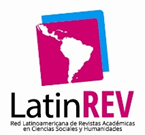Being a teacher in virtual environments: post-pandemic challenges and demands for initial teacher training. An approach from the evaluation of future teachers and their mentors.
DOI:
https://doi.org/10.21703/rexe.v23i51.2156Keywords:
Initial teacher training, Pedagogical practices, Pandemic, virtualityAbstract
The 2020-2021 educational context, characterized by the abrupt change from a face-to-face modality towards distance education, generated learning experiences unknown up to that moment. Although distance education has existed for years, for the first time it was applied massively and at all educational levels. This article shows the results of a study that investigated the experience of future teachers and their mentors in the school system regarding the classroom practices carried out in this new virtual modality. From the application of a qualitative survey, and under a qualitative-interpretative paradigm, their practices were analyzed, identifying didactic, curricular, and technological aspects, among others, that facilitated or hindered the teaching-learning processes. The results show that for teachers in training this experience was highly complex, mainly due to what they consider to be a lack of preparation in their initial training for this virtual teaching scenario. In the case of their tutors, there is a negative perception of the impact of this context of virtual practices in the formation of professional skills. Although they admit the development of new skills, the inevitable return to face-to-face, considered this as the normal context, makes one always think about the deficiencies that virtuality leaves in professional skills necessary for face-to-face teaching. The foregoing also provides the framework for reflection on the demands that this new context places on the training of 21st century teachers.
Downloads
References
Alliaud, A. (2015). Los artesanos de la enseñanza pos-moderna. Hacia el esbozo de una propuesta para su formación. Historia y Memoria de la Educación. https://doi.org/10.5944/hme.1.2015.12704
Aguilar, F. (2020). Del aprendizaje en escenarios presenciales al aprendizaje virtual en tiempos de pandemia. Estudios Pedagógicos XLVI 46 (3), 213-223, 2020. https://scielo.conicyt.cl/pdf/estped/v46n3/0718-0705-estped-46-03-213.pdf. https://doi.org/10.4067/S0718-07052020000300213
Avalos, B. (2004) La formación docente inicial en Chile, Santiago. http://www.ub.edu/obipd/PDF%20docs/Aspectes%20laborals/Documents/La%20Formacion%20Docente%20Inicial%20en%20Chile.%20AVALOS.pdf.
Chehaibar, L. M. (2020). Flexibilidad curricular. Tensiones en tiempos de pandemia. En H. Casanova Cardiel (Coord.), Educación y pandemia: una visión académica (pp. 83-91). Ciudad de México: Universidad Nacional Autónoma de México, Instituto de Investigaciones sobre la Universidad y la Educación. https://www.iisue.unam.mx/investigacion/textos/educacion_pandemia.pdf.
De Alba, A. (2020). Currículo y operación pedagógica en tiempos de COVID-19: futuro incierto. En H. Casanova Cardiel (Coord.), Educación y pandemia: una visión académica (pp. 289-294). Ciudad de México: Universidad Nacional Autónoma de México, Instituto de Investigaciones sobre la Universidad y la Educación. https://www.iisue.unam.mx/investigacion/textos/educacion_pandemia.pdf.
Díaz Larenas, C. & Bastías Díaz, C. (2013) Los procesos de mentoría en la formación inicial docente. Rev. Int. Investig. Cienc. Soc. 9 (2), 301-315.
Gorichon, S. Salas Macarena, Araos, María José, Yáñez, Mariluz, Rojas-Murphy, Andrés, & Jara-Chandía, Geraldine. (2020). Prácticas de mentoría para la inducción de docentes principiantes: análisis de cuatro casos chilenos al inicio del proceso. Calidad en la educación, 52, 12-48. https://scielo.conicyt.cl/pdf/caledu/n52/0718-4565-caledu-52-12.pdf
Grudnoff, L. (2011). Rethinking the practicum: Limitations and possibilities. Asia-Pacific Journal of Teacher Education. 39, 223-234. https://doi.org/10.1080/1359866X.2011.588308
Guevara , J. (2016) La tríada de las prácticas docentes: aportes de investigaciones anglófonas. Espacios en Blanco. Revista de Educación, 26, 243-271.
Hernández Sampieri, R., Fernández Collado, C., & Baptista Lucio, P. (2014). Metodología de la investigación (6a. ed. --.). México D.F.: McGraw-Hill.
Lima, S. y Fernández, F. (2017) La educación a distancia en entornos virtuales de enseñanza aprendizaje. Reflexiones didácticas. Atenas, 3(39), 31-47.
Marcelo, C. (2009) Los comienzos en la docencia: un profesorado con buenos principios Profesorado. Revista de Currículum y Formación de Profesorado, 13 (1), 1-25.
Ministerio de Educación, Centro de Estudios (2020). Impacto del COVID-19 en los resultados de aprendizaje y escolaridad en Chile. Santiago, Chile. https://chile.un.org/sites/default/files/2020-11/Impacto-del-COVID-19-en-los-Resultados-de-Aprendizaje-y-Escolaridad-en-Chile-Analisis-con-Base-en-Herramienta-de-Simulacion-Proporcionada-por-el-Banco-Mundial.pdf
Pérez Juste, R. (2000). La evaluación como medio para la mejora de la calidad y de la eficacia del aprendizaje, de la educación y de las instituciones. Revista de Investigación Educativa, 18 (2), pp. 261-287. https://digitum.um.es/digitum/bitstream/10201/45401/1/La%20evaluacion%20de%20programas%20educativos%20conceptos%20basicos,%20planteamientos%20generales%20y%20problematica.pdf
Rodriguez, G., Gil, J., y García, E. (1999) Metodología de la investigación cualitativa. Aljibe.
Romero-Jeldres, M. & Maturana-Castillo, D. (2012). La supervisión de prácticas pedagógicas: ¿cómo fortalecer la tríada formativa? Magis, Revista Internacional de Investigación en Educación, 4 (9), 653-667. https://es.scribd.com/document/382896573/2012-Romero-La-Supervision-de-Practicas-Pedagogicas-Como-Fortalecer-La-Triada-Formativa.
Sobarzo Morales, M. (2021). Covid 19 y los desafíos educativos del presente. Revista Enfoques Educacionales, 17(2), 59-72. https://doi.org/10.5354/0717-3229.2020.60719
Tapia M. W. (2020). ¿Me escuchan? ... ¿sí?. En Narrativas confinadas, voces desde el sur. Colectivos. Volumen III. Nefi, Edicoes. 2020.
Tourn, J. (2020). Hacia la corporeización de la virtualidad. En Narrativas confinadas, voces desde el sur. Colectivos. Volumen III. Nefi, edicoes.
Vezub, L. (2010) Las políticas de acompañamiento pedagógico como estrategia de desarrollo profesional docente. El caso de los programas de mentoría a docentes principiantes. Revista del IICE, 30, 103-124.
Downloads
Published
Issue
Section
License
Copyright (c) 2023 Marcela Palma-Troncoso, Rosse Marie Vallejos-Gómez, Gerardo Urra-Barra

This work is licensed under a Creative Commons Attribution 4.0 International License.
Open Access Policy
This journal provides immediate open access to its content, based on the principle that offering the public free access to research fosters greater global knowledge exchange.
License
The REXE Journal, “Journal of Studies and Experiences in Education,” published by the Faculty of Education at the Universidad Católica de la Santísima Concepción, is distributed under a License. Creative Commons Atribución 4.0 Internacional.






